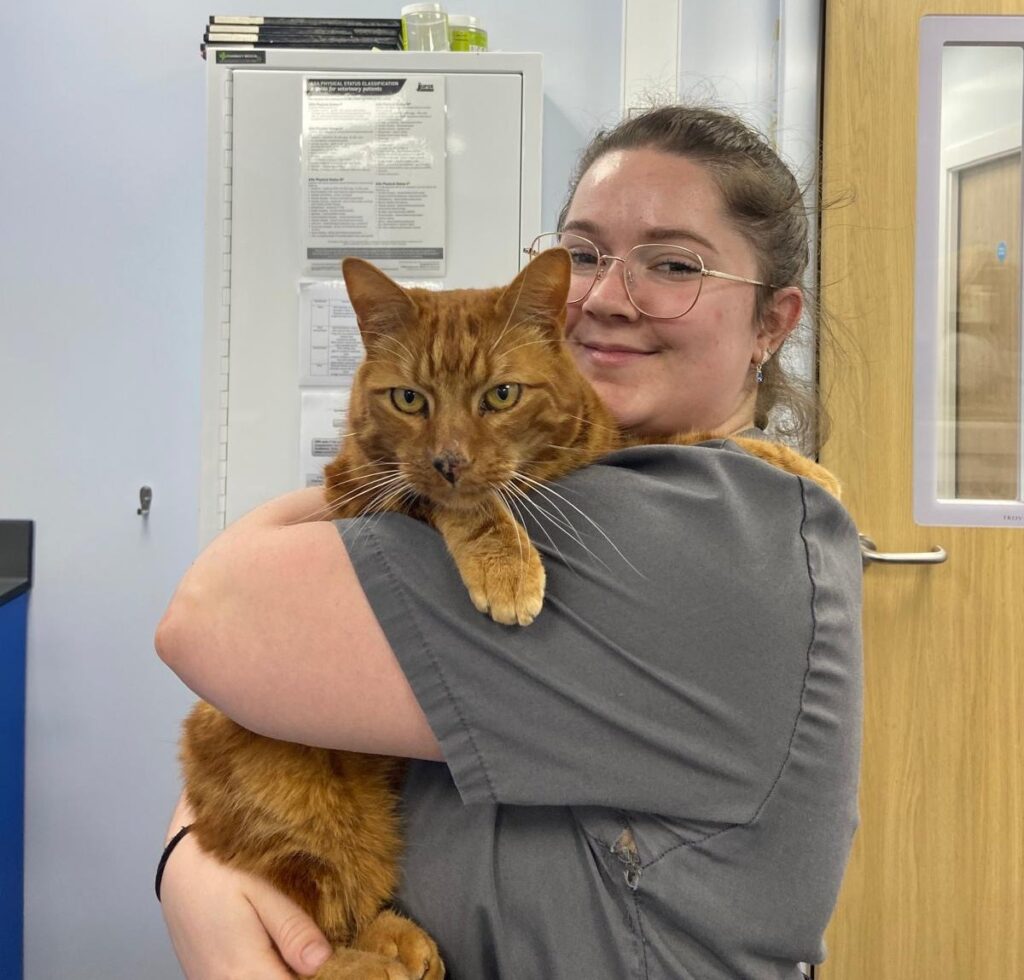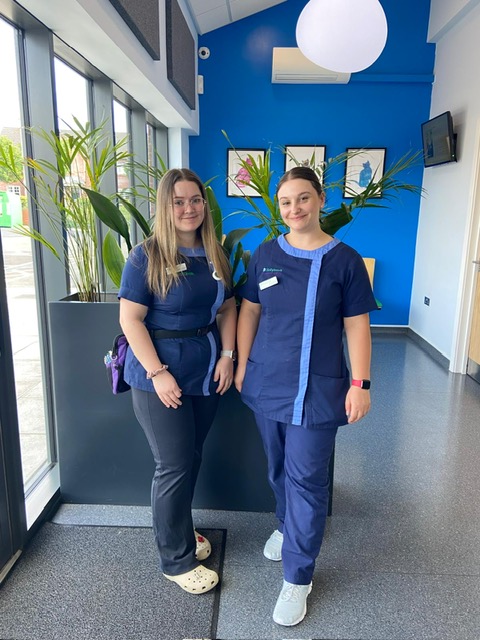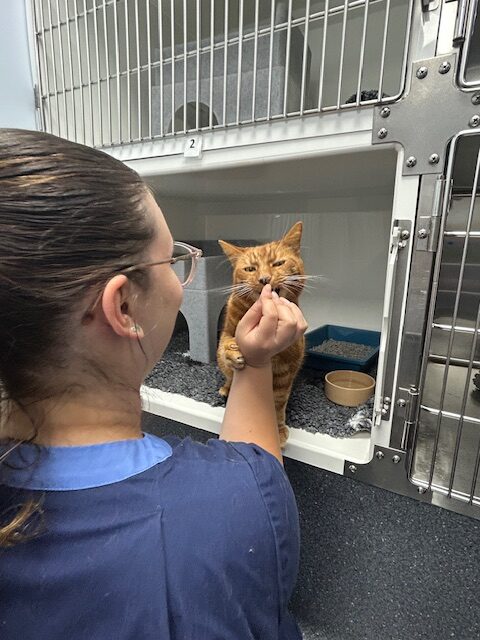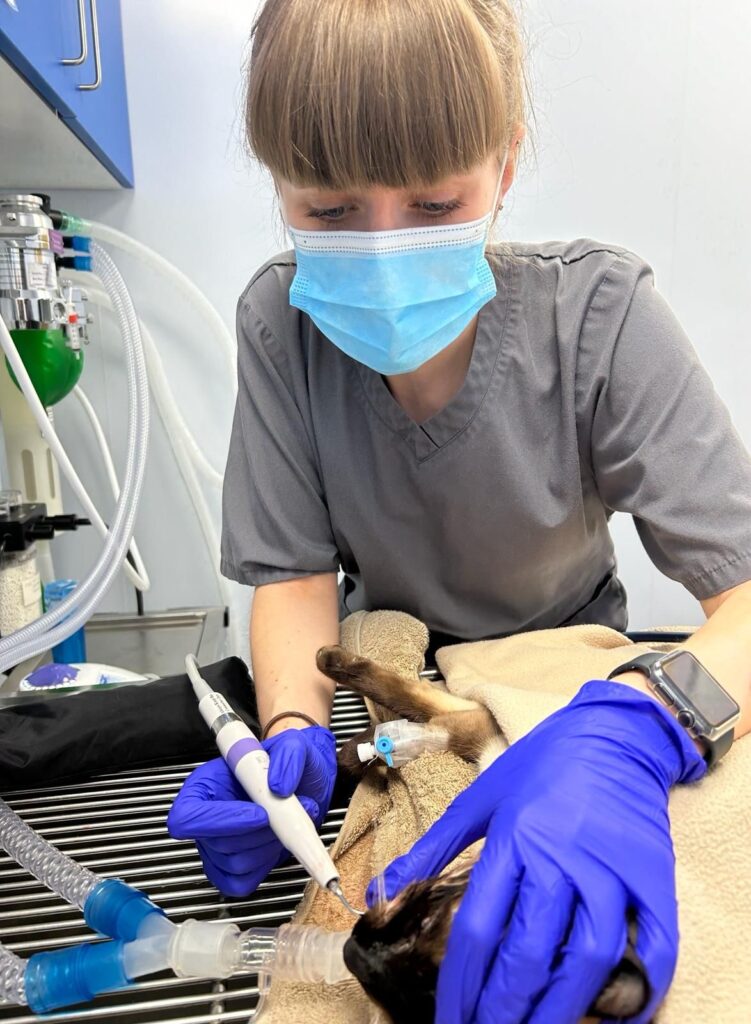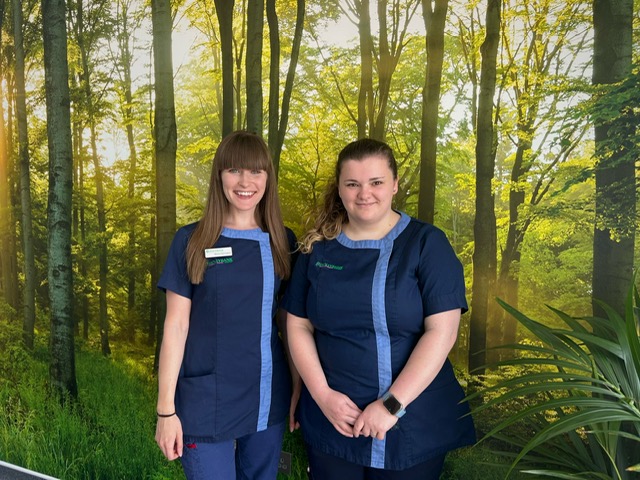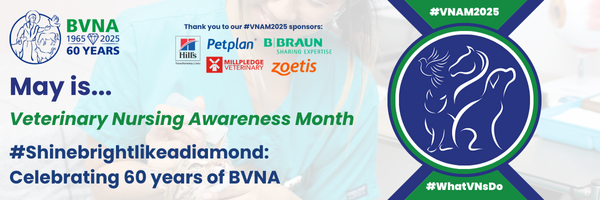Holly joined the Hollybank team in June 2024, and Katie came back to Hollybank after qualifying, having done her placement year with us 2022-2023.
Holly
Since qualifying as an RVN in June 2023 and joining team Hollybank just over a year later, I feel I have made progressions in several aspects of our multidisciplinary role. Through our inpatient rounds with clinical staff each day to discuss cases, I believe my inpatient care has improved through picking up extra information and knowledge of medical cases from our vets and nurses. This is something I didn’t have much experience of before. I would like to continue improving this via discussions with the team and through CPD.
Since joining Hollybank, I have completed the BVNA Oral Care Nursing Certificate; progressing my knowledge in canine and feline dentistry, and I now feel confident discussing this with clients in our nurse clinics.
This coming year, I hope to continue gaining knowledge in monitoring anaesthetics and I hope to one day become a clinical coach to help train and support student nurses towards gaining their qualifications.
Katie M
As a newly qualified RVN, veterinary practice can be a daunting place. I qualified in July 2024 and therefore am the newest RVN currently working at Hollybank.
I feel even in the short time frame that I have been working as an RVN, my skills have progressed majorly with the help of those working at Hollybank. I am becoming more confident within my capabilities, and I am thoroughly enjoying my career.
Being an RVN can be a taxing job with highs and lows, however, the satisfaction of being able to help many pets makes it more than worthwhile.
My favourite nursing role is inpatient care. Hollybank nurses also work night shifts to provide overnight care to your pets. I feel I have progressed a lot in my ability to solely care for patients overnight including making plans alongside the vet to nurse patients back to health. I hope to continue to progress my skills as an RVN with the help of my wonderful colleagues at Hollybank.

